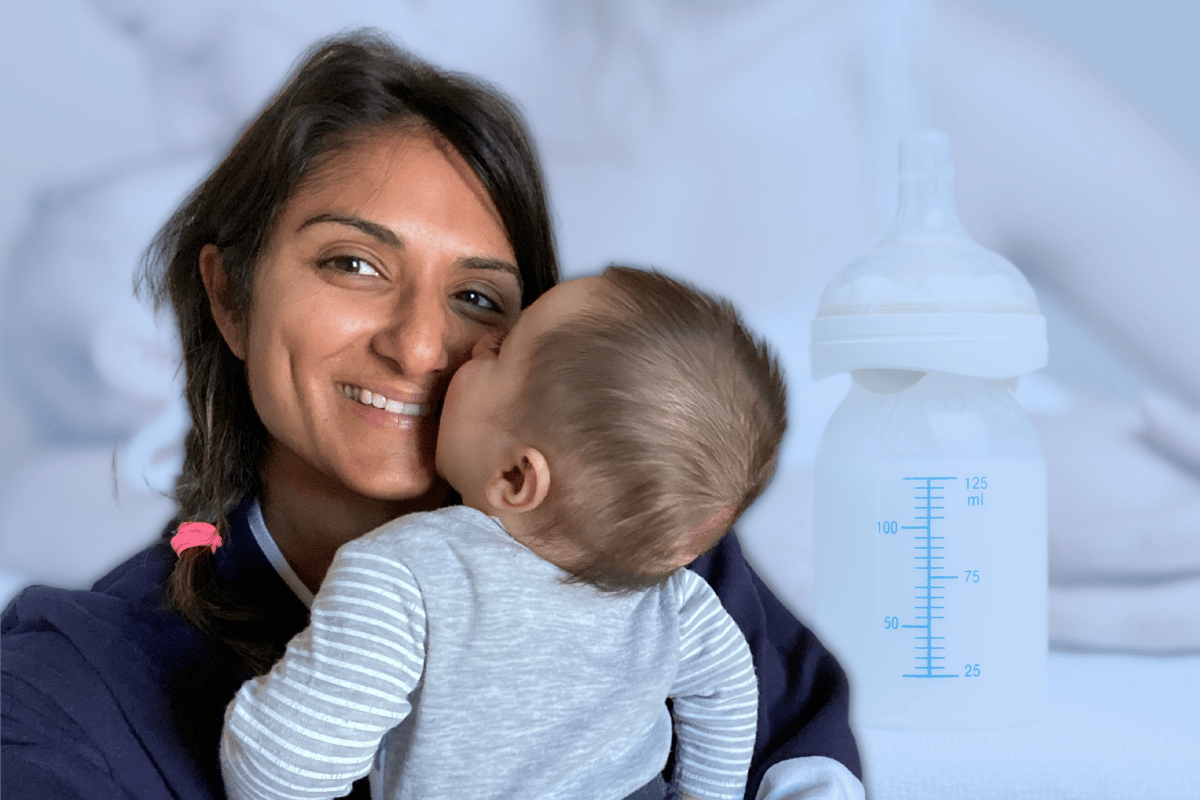
Dr Preeya Alexander is a busy GP, television presenter and author of Eat, Sleep, Play, Love. As a doctor, she consults with a lot of new mums who share very similar worries and questions and as a mum-of-two, she can empathise with all of it.
"I think knowing what is 'normal' is one of the biggest challenges of parenthood," Dr Preeya tells Mamamia.
"Mums get handed their newborn, who is completely dependent, and have no idea really what the 'normal' spectrum is. What you're meant to worry about and what you're meant to let go through to the keeper.
Watch: Superwoman is dead. Post continues below.
In her clinic, Dr Preeya says that the new mums she consults mostly need reassurance and that there are a lot of shared concerns.
1. Am I doing this sleeping and feeding thing right?
"Some of the most common questions I get from new mums is about sleep," Dr Preeya tells Mamamia.
"Sleep deprivation is so hard, and I thought I used to 'get it' as a junior doctor working night shifts before I had kids. But then I had my first baby, and I had this epiphany as I struggled with the emotion of being permanently exhausted and emotional from lack of sleep.
